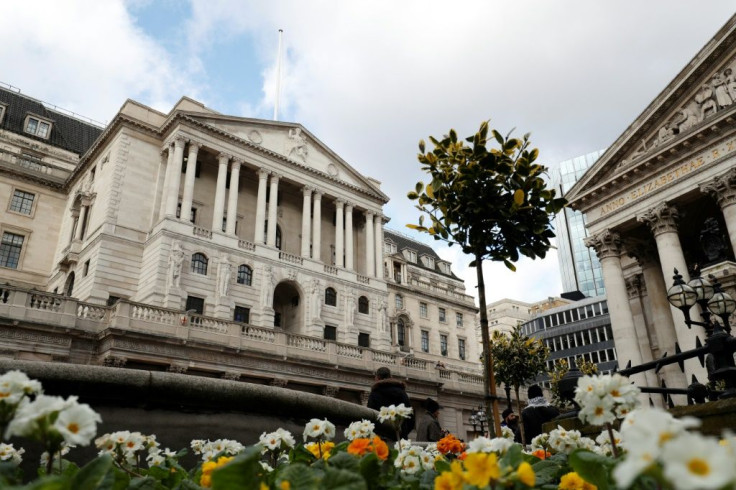Britain Deploys 'Big Bazooka' On Coronavirus Crisis

Britain on Wednesday unveiled its emergency economic response to the novel coronavirus outbreak, combining aggressive spending and monetary policy stimulus to protect people and businesses -- and pledged to do more if the situation deteriorated.
The coordinated government and Bank of England fightback is designed to combat what it said was a "significant but temporary" economic impact from the virus, which has hit 110 countries and territories around the world.
Finance minister Rishi Sunak outlined a fiscal stimulus worth ?30 billion ($39-billion, 34.4-billion euros) while the central bank slashed interest rates to a record-low 0.25 percent.
The budget was Britain's first since leaving the European Union on January 31 but it was overshadowed by the rapidly spreading virus and its potential effects.
Sunak told parliament that COVID-19 "will have a significant impact on the UK economy -- but it will be temporary".
The stimulus included help for small businesses facing potential disruptions to supply chains and absent workers.
Six people have so far died in Britain from the virus, with more than 450 confirmed cases, including a minister in the health department.
Prime Minister Boris Johnson has warned tougher measures to contain the spread of the virus were likely in the coming weeks.
Sunak warned of likely short-term economic disruption as up to a fifth of the UK's working-age population could be off sick at any one time.
Sunak, 39, making his first budget speech since being appointed chancellor of the exchequer last month, acknowledged mounting public concern.
"People want to know what is happening and what can be done to fix it," he said, promising the government was doing "everything we can to keep this country and our people healthy and financially secure."
He added: "I am announcing today in total a ?30-billion fiscal stimulus to support British people, British jobs and British businesses through this moment.
"If further action is needed if the situation evolves... I will not hesitate to act."
As expected, the budget confirmed plans for big spending on UK infrastructure.
But the government separately slashed Britain's economic growth forecast for this year to 1.1 percent from 1.4 percent, in a sharp downward revision that did not however take into account the virus.
The Office for Budget Responsibility fiscal watchdog also warned that a recession this year was "quite possible" if the coronavirus causes widespread economic havoc.
It also estimated that the economic effect of Britain's decision to leave the European Union had cut potential output by about 2.0 percent compared to if the country had opted to stay.
It blamed in part lower net inward migration but also businesses having to divert resources from production to prepare for potential Brexit outcomes, including no-deal.
The Bank of England earlier revealed policymakers voted unanimously to slash interest rates to 0.25 percent from 0.75 percent in the biggest cut since the 2008 global financial crisis.
The reduction headed a "package of measures to help UK businesses and households bridge across the economic disruption that is likely to be associated with COVID-19", it added.
Outgoing governor Mark Carney promised the central bank "will take all necessary further steps to support the UK economy and financial system" from the coronavirus fallout.
That included continuing to coordinate closely with international counterparts, he added.
"Mark Carney and Rishi Sunak have produced a forceful and convincing response to the crisis," said Ian Stewart, chief economist at financial services firm Deloitte.
"In economic policy terms they just deployed the big bazooka.
"Today's coordinated actions suggest the government will do whatever it takes to help the economy through the coronavirus crisis."
Sunak was catapulted into the role after his boss Sajid Javid resigned unexpectedly last month rather than accept Johnson's demand to sack all his political advisers.
Johnson wants greater say over Treasury policy following his December election victory that ended more than three years of political wrangling over Brexit and allowed Britain to finally quit the EU less than six weeks ago.
To date, the divorce has resulted in more than ?4.0 billion in extra government spending.
Britain and the EU have begun negotiations on a new trade deal but only have until December 31, when a post-Brexit transition period ends, to nail down the details.
The next round is set to place in London next week but could be affected by the coronavirus outbreak.
© Copyright AFP 2024. All rights reserved.





















